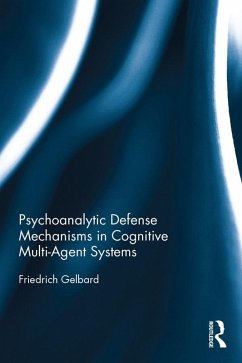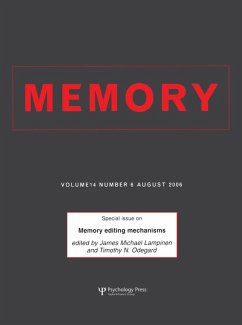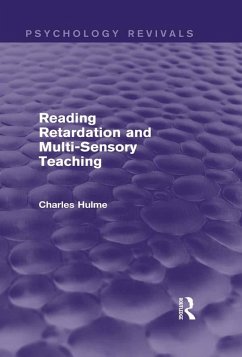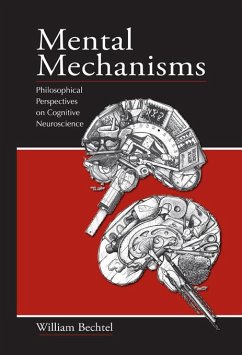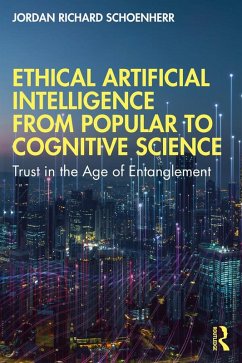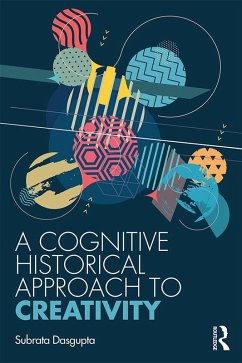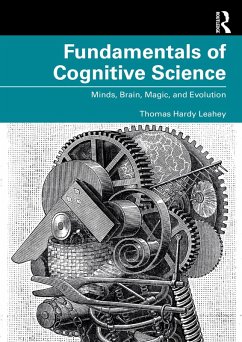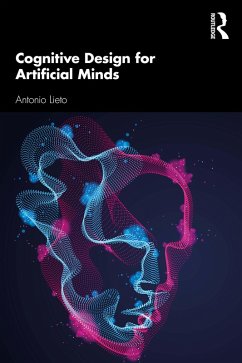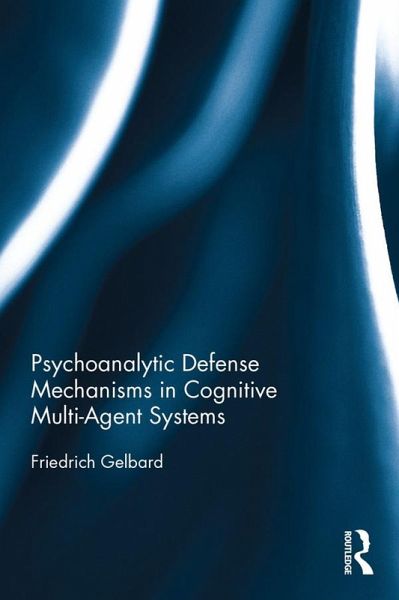
Psychoanalytic Defense Mechanisms in Cognitive Multi-Agent Systems (eBook, ePUB)
Versandkostenfrei!
Sofort per Download lieferbar
45,95 €
inkl. MwSt.

PAYBACK Punkte
23 °P sammeln!
Human cognitive processes and defense mechanisms, as described in psychoanalysis, bring about new notions and paradigms for artificial intelligence systems. One key reason is that the human cognitive processes and defense mechanisms in question can accomplish conflict detection functionalities, filter functionalities, and other system stabilizing tasks within artificial intelligence systems. Yet artificial cognitive architectures lack the capability to analyze complex situations as well as the universal competencies needed to orientate themselves in complex environments in various domains. Psy...
Human cognitive processes and defense mechanisms, as described in psychoanalysis, bring about new notions and paradigms for artificial intelligence systems. One key reason is that the human cognitive processes and defense mechanisms in question can accomplish conflict detection functionalities, filter functionalities, and other system stabilizing tasks within artificial intelligence systems. Yet artificial cognitive architectures lack the capability to analyze complex situations as well as the universal competencies needed to orientate themselves in complex environments in various domains. Psychoanalytic Defense Mechanisms in Cognitive Multi-Agent Systems addresses this dilemma by exploring how to describe, model, and implement psychoanalytic defense mechanisms in the course of a project that provides a functional model of the human mind.
With discussions focusing on the development of a mathematical description for the implementation of conflict detection, the activation and selection of defense mechanisms, and the processing of defense mechanisms, Psychoanalytic Defense Mechanisms in Cognitive Multi-Agent Systems describes the decisive points for the application of defense mechanisms in artificial intelligence. Formulae that treat defense mechanisms as transformations are also provided. Interdisciplinary cooperation between the scientific fields of psychoanalysis and artificial intelligence is highlighted as the foundation of new research findings throughout the book.
Innovative and exciting, this book will be of great interest to academics, researchers, and postgraduates in the fields of cognitive science, artificial intelligence, and psychoanalysis.
With discussions focusing on the development of a mathematical description for the implementation of conflict detection, the activation and selection of defense mechanisms, and the processing of defense mechanisms, Psychoanalytic Defense Mechanisms in Cognitive Multi-Agent Systems describes the decisive points for the application of defense mechanisms in artificial intelligence. Formulae that treat defense mechanisms as transformations are also provided. Interdisciplinary cooperation between the scientific fields of psychoanalysis and artificial intelligence is highlighted as the foundation of new research findings throughout the book.
Innovative and exciting, this book will be of great interest to academics, researchers, and postgraduates in the fields of cognitive science, artificial intelligence, and psychoanalysis.
Dieser Download kann aus rechtlichen Gründen nur mit Rechnungsadresse in A, B, BG, CY, CZ, D, DK, EW, E, FIN, F, GR, HR, H, IRL, I, LT, L, LR, M, NL, PL, P, R, S, SLO, SK ausgeliefert werden.




